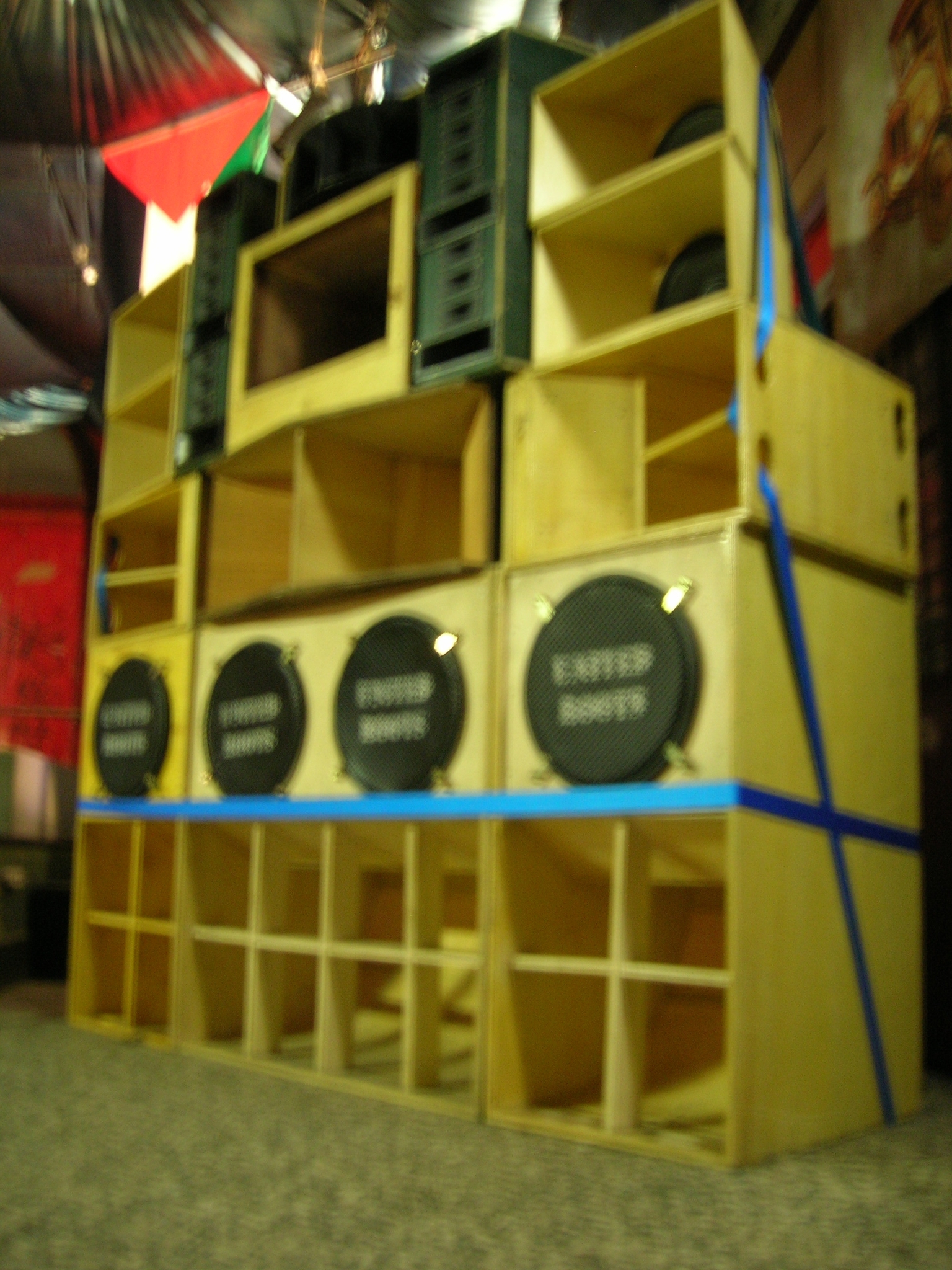- Posts: 1232
- Thank you received: 5
Windows 7 x64 Ultimate - Swap File
- levyte357
-
 Topic Author
Topic Author
- Offline
- Platinum Member
-

Currently have 2x 4gb sticks of DDR3, so intended another 8GB RAM in about a month.
Or could just run with 2nd Hard disk, dedicated to TEMP dir/Swap file as usual.. :lol:
\"When in Vegas, do as the vegasians do\".
Please Log in or Create an account to join the conversation.
- nickyburnell
-

- Offline
- Platinum Member
-

- Posts: 802
- Thank you received: 0
Small Solid State drive?
Please Log in or Create an account to join the conversation.
- levyte357
-
 Topic Author
Topic Author
- Offline
- Platinum Member
-

- Posts: 1232
- Thank you received: 5
nickyburnell wrote: Runs like a dog woth 4gb and no swap. (32bit)
smiley11
Not SSD, have a few 80gb SATA drives hanging around the place...
Wondering if I should put system, page file and temp dir on disk 0, and leave 2nd drive purely for data.
There are performance gains when data & system/swap file are not on data disk.
\"When in Vegas, do as the vegasians do\".
Please Log in or Create an account to join the conversation.
- bee
-

- Offline
- Platinum Member
-

- Posts: 2090
- Thank you received: 34
Please Log in or Create an account to join the conversation.
- nickyburnell
-

- Offline
- Platinum Member
-

- Posts: 802
- Thank you received: 0
As hard drives are actually slow compared to ram, the holy grail is to run without one.
Real world coding of Windows actually makes it debatable as to whether this is advantageous, but on paper with enough ram it should be cool.
Now we have 64bit the possibilities are endless (for now).
Putting the swap file on a separated drive is seen as advantageous (especially now with dual and quad core) as the mundane swap stuff can be kept away from the actual data processing.
Having it on a separate PARTITON is of no use at all, as this uses the same (IDE/SATA) controller. Has to be a separate drive on a separate channel.
It is a lot more complicated than this explanation, registers, instruction sets.......blah.
Lev: Are the dual/quad cores able to take advantage of this? Do they realise and split the work load?
Please Log in or Create an account to join the conversation.
- bitzo
-

- Offline
- Platinum Member
-

- Posts: 637
- Thank you received: 1
Please Log in or Create an account to join the conversation.
- levyte357
-
 Topic Author
Topic Author
- Offline
- Platinum Member
-

- Posts: 1232
- Thank you received: 5
nickyburnell wrote: No, Windows has a swap file (page file/virtual memory) that it uses.
As hard drives are actually slow compared to ram, the holy grail is to run without one.
Real world coding of Windows actually makes it debatable as to whether this is advantageous, but on paper with enough ram it should be cool.
Now we have 64bit the possibilities are endless (for now).
Putting the swap file on a separated drive is seen as advantageous (especially now with dual and quad core) as the mundane swap stuff can be kept away from the actual data processing.
Having it on a separate PARTITON is of no use at all, as this uses the same (IDE/SATA) controller. Has to be a separate drive on a separate channel.
It is a lot more complicated than this explanation, registers, instruction sets.......blah.
Indeed.
nickyburnell wrote: Lev: Are the dual/quad cores able to take advantage of this? Do they realise and split the work load?
Good question..
Cpu micro code/assembler instructions to handle paging/swapping have been around for decades, not sure what Intel has packed into Multi-core x86 cpu's, to help Windows be grown up like UNIX/Linux. :lol:
\"When in Vegas, do as the vegasians do\".
Please Log in or Create an account to join the conversation.
- levyte357
-
 Topic Author
Topic Author
- Offline
- Platinum Member
-

- Posts: 1232
- Thank you received: 5
bitzo wrote: you can pimp a bit more your system by enabling hyperthreading. On swap side...there's another technique, buy a sata raid controller, configure a raid 0 with 2 hd (7200rpm, pay attention on cooling), only used for swap. You'll see unique volume for both hd with twice size and speed (just in theory).
Yes, would normally indulge in some Hardware "madness" like this... :lol:
However for next PC, running Windows 7 x64 reliably and stable without driver issues is priority, so I've done the unthinkable.
Bought Dell 780 Mainboard/Tower case, as this model accepts standard size Optical Drives & PSUs.
Case (as is) supports only 2x HD disks, So has to be optimal 2x disk Solution this time.
@Bitzo, apologies for not replying re:MS18, PM Nick for info we "discussed". smiley2
\"When in Vegas, do as the vegasians do\".
Please Log in or Create an account to join the conversation.
- nickyburnell
-

- Offline
- Platinum Member
-

- Posts: 802
- Thank you received: 0
Quite:levyte357 wrote:
nickyburnell wrote: No, Windows has a swap file (page file/virtual memory) that it uses.
As hard drives are actually slow compared to ram, the holy grail is to run without one.
Real world coding of Windows actually makes it debatable as to whether this is advantageous, but on paper with enough ram it should be cool.
Now we have 64bit the possibilities are endless (for now).
Putting the swap file on a separated drive is seen as advantageous (especially now with dual and quad core) as the mundane swap stuff can be kept away from the actual data processing.
Having it on a separate PARTITON is of no use at all, as this uses the same (IDE/SATA) controller. Has to be a separate drive on a separate channel.
It is a lot more complicated than this explanation, registers, instruction sets.......blah.
Indeed.
nickyburnell wrote: Lev: Are the dual/quad cores able to take advantage of this? Do they realise and split the work load?
Good question..
Cpu micro code/assembler instructions to handle paging/swapping have been around for decades, not sure what Intel has packed into Multi-core x86 cpu's, to help Windows be grown up like UNIX/Linux. :lol:
smiley23
Copied this for some amazing reading.
Check out the no of transistor.
All in the space of a thumbnail
Core i7
Bloomfield – 45 nm process technology 4 physical cores
256 KB L2 cache
8 MB L3 cache
Front side bus replaced with QuickPath up to 6.4GT/s
Hyper-Threading is again included. This had previously been removed at the introduction of Core line
781 million transistors
Intel Turbo Boost Technology
TDP 130W
Introduced November 17, 2008
Socket 1366 LGA
3-channels DDR3
Variants 975 (extreme edition) – 3.33 GHz/3.60 GHz Turbo Boost
965 (extreme edition) – 3.20 GHz/3.46 GHz Turbo Boost
960 - 3.20 GHz/3.46 GHz Turbo Boost
950 – 3.06 GHz/3.33 GHz Turbo Boost
940 – 2.93 GHz/3.20 GHz Turbo Boost
930 – 2.80 GHz/3.06 GHz Turbo Boost
920 – 2.66 GHz/2.93 GHz Turbo Boost
Mind you, as an old techie mate said once when discussing this: You cant see bed bugs either smiley36
Please Log in or Create an account to join the conversation.
- levyte357
-
 Topic Author
Topic Author
- Offline
- Platinum Member
-

- Posts: 1232
- Thank you received: 5
nickyburnell wrote: Core i7
As a rule, I never spend more than £50-60, on CPU upgrade.
So I guess I'll have to settle for my recently acquired Q6600, +16Gb DDR3, until Core i7 is in my price band... :lol:
\"When in Vegas, do as the vegasians do\".
Please Log in or Create an account to join the conversation.
